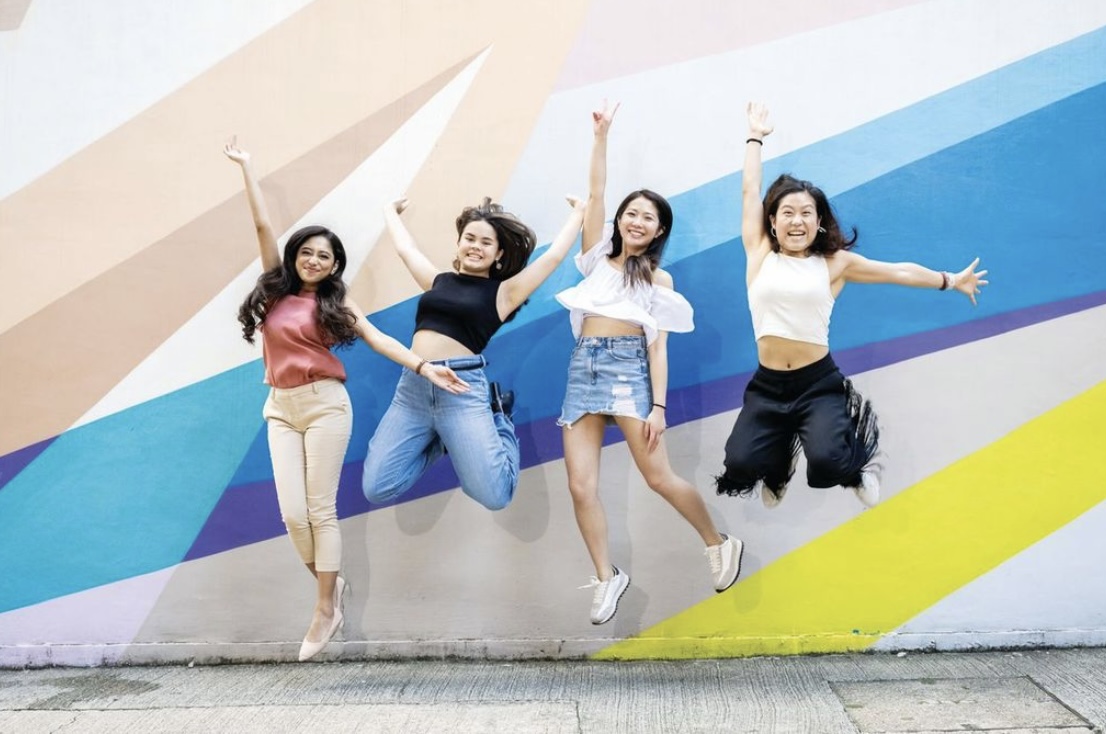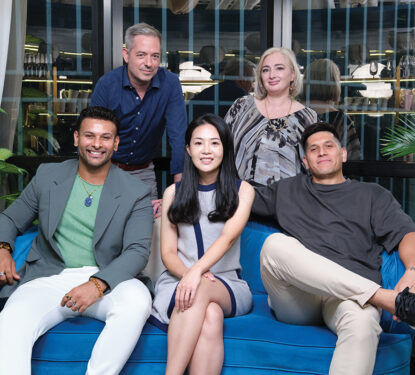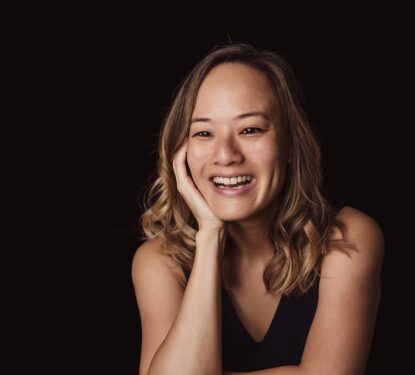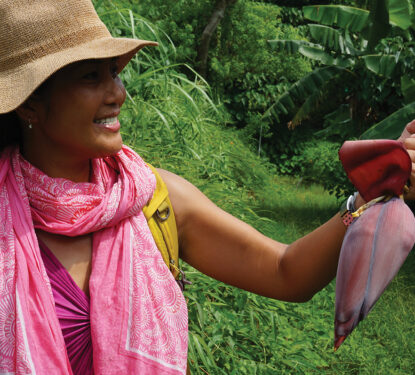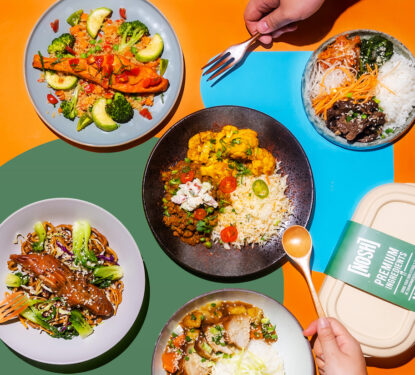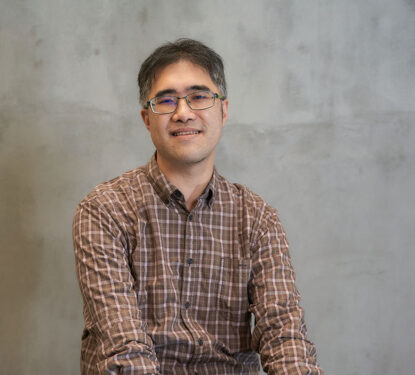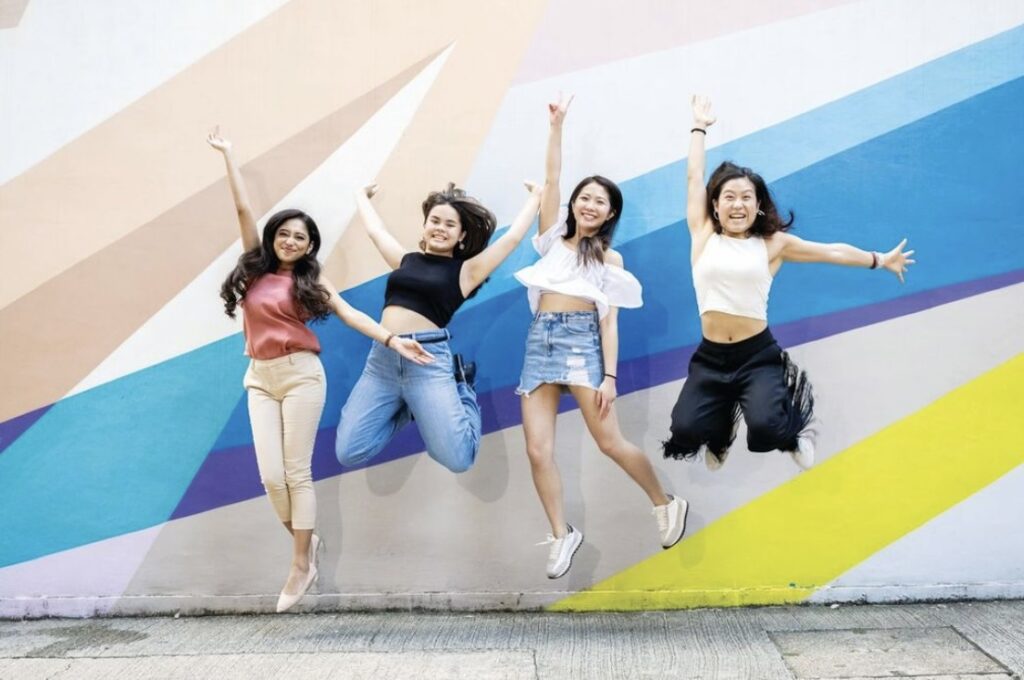
Born after 1996, Gen Z is the first demographic cohort to grow up with the internet, social media, and limitless access to information. That has led to a new generation of young adults who are more progressive, invested in social causes such as climate change, and prioritise their self-care and mental health over personal wealth.
In short, Gen Z are probably the most wellness-focused generation that has ever lived – so it’s only a matter of time before they start leaving their mark on the health and wellness landscape. We spoke to five local entrepreneurs about their companies, what drives them, and what makes Gen Z so unique compares to previous generations.
Bailey Cherry, 17
Founder of ReBooked, Hong Kong’s biggest and only sustainable children’s bookstore.
Can you tell us more about ReBooked?
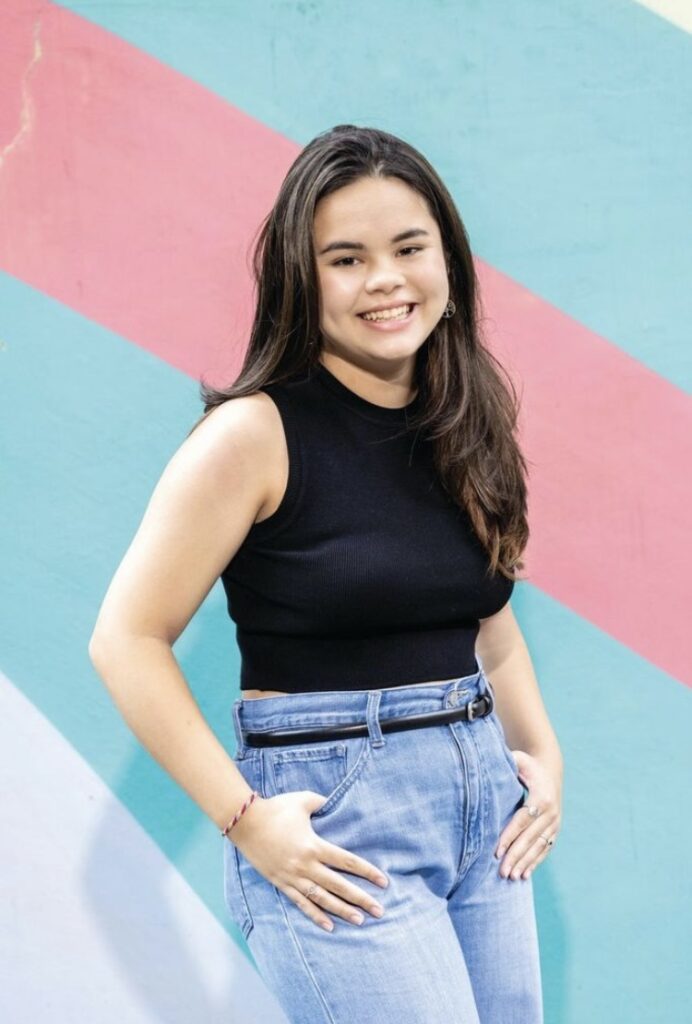
ReBooked is a social enterprise I founded in 2019 that collects and redistributes preloved children’s books. Since our founding, we have extended the shelf life of over 150,000 books and saved them from going straight to the landfill.
In Hong Kong, ReBooked provides the following services: first, a free, convenient and sustainable way to dispose of unwanted children’s books; second, an online and retail store to access quality and affordable preloved books; and third, a community outreach program to serve underprivileged children through the redistribution of books.
Last year, we also opened a shop in Central to serve as both a drop-off centre for donations, a bookstore, and a venue for literacy sessions and community events. Outside of Hong Kong, we’ve distributed over 5,000 books to low-income families in the Philippines, in collaboration with local NGOs.
You started ReBooked as a high-school student. Did you feel like you had any barriers starting at that age?
As a 14-year-old, I had no idea how to launch a social enterprise. I sought out learning opportunities, from free online courses to webinars to setting up meetings with mentors. Apart from using available resources, a lot of my learning was done through trial and error. Every decision
I made, I reflected on its efficiency or success. I’ve learned that the essence of entrepreneurship is utilising the available resources and being open to learning along the way.
Do you think Gen Z are more concerned with environmental issues than older generations?
Yes, absolutely! From many discussions I’ve had with other similarly-minded young people, I believe that concern is due to fear. A lot of my peers may have already experienced the negative implications of human activity on the environment, or they expect to in their lifetime. It’s this feeling of dread for the future state of the planet, something that’s been called “eco- anxiety.”
I think Gen Z also recognises how environmental and social issues are interconnected. Climate change, pollution, and waste disproportionately impact marginalised groups. Young people who are concerned about social issues are often more informed about environmental issues as well. For true sustainability and justice, we cannot simply acknowledge one single issue, but all aspects: environmental, social and economical.
James Wang, 16
Co-founder of Jord, an online centralised directory for sustainable lifestyle choices.
Can you explain what Jord is and how it works?
With over 180 brands and 200 physical locations, Jord’s platform is the go-to place for any Hongkonger trying to live a more eco-friendly lifestyle. Every brand or organisation we recommend has been carefully evaluated by our strict criteria, created by our team and our board of advisors to ensure the credibility of our listings. The platform is also integrated with advanced filtering, location maps, curated lifestyle collections, and even a sustainability simulator to help our users visualise how they can transform their household into one that is more environmentally-friendly!
What are some of the sustainability criteria that you use?
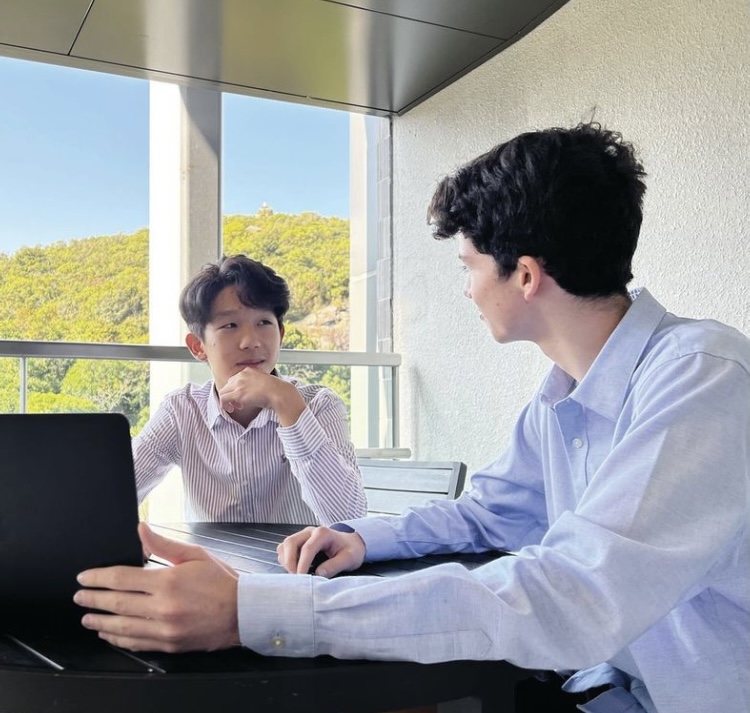
Every partner on our platform is making an active effort to reduce their environmental impact, and carry out conscious business practices throughout their operations. To determine this, we gather key performance indicators from categories such as sourcing, products, operations, and commitments, providing a simple but comprehensive overview of a company’s environmental impact.
We also recognise that no business is “fully sustainable,” since all products require energy and resource inputs.What we can ensure, however, is that every brand listed on our platform has a lower environmental impact relative to its “traditional” counterparts. And of course, we’ve done our due diligence to only guarantee products that are not just sustainable, but high-quality and practical to use.
How can readers support Jord?
We’re a high school start-up, so understandably, we have limited resources. Anyone who is reading this, we sincerely hope you will consider looking at our platform and spreading the word to their family and friends. The more we can permeate Hong Kong’s consciousness and become a part of the community, the more it supports our mission and our team, and the next generation of young people striving to make Hong Kong a greener place to live!
Steph Ng, 25
A PhD student and the founder of Body Banter, a registered charity aimed fostering conversations with youth about body image and mental health.

What kinds of programmes does Body Banter offer?
Body Banter’s initiatives aim to empower individuals and communities with the confidence and vocabulary to speak up, on their own terms. Our current initiatives include our Banter-bassador programme: mentors guide
youth ambassadors to create their own advocacy project – a resource that raises awareness and stimulates – such as a podcast, video blog, or infographic.
We also offer our Lending Language workshop series, working with secondary schools and colleges to help students challenge diet culture and societal beauty standards, and generate ways to advocate for positive change in their communities.
Our website also houses a collection of virtual resources on how to start informed, thoughtful conversations about body image and mental health topics.
Hong Kong isn’t the most forgiving for different types of bodies. Do you think that Gen Z are starting to question that beauty standard?
Absolutely, and this is very encouraging to witness. Based on the many conversations I’ve had with young people, I see that while many of them continue to grapple with body image concerns and how to separate themselves from unrealistic beauty standards, they are beginning to question the assumption of how things “should” be.
There’s a budding awareness of other ways in life to achieve a sense of self-acceptance, purpose and fulfilment – and that’s a great start.
Why was it important to you to launch a body positivity movement in Hong Kong?
The simple answer to this: my mess is my message. My “why” for starting Body Banter is knowing that I’m contributing resources and ideas that I wish my younger teen self – who grappled with an eating disorder – could have had access to. My passion for what I do comes from a deeply personal place, and I believe that this is what keeps my fire burning bright.
Ashley Chan Shan Shan, 26
Founder of Blendit, a health food brand specialising in superfood smoothies, handmade bagels and other nutritional products.

Tell us a little bit about Blendit.
Blendit is a healthy food company that strives to serve Hongkongers in a simple and cost-effective way. We operate as a wholesaler, selling our signature bagels and superfood powders to local cafes and restaurants. As a retailer, we have our flagship store in Prince Edward, where we offer over 40 kinds of superfood powders and fresh bagels. And we have a newly opened F&B outlet in Central, where we serve dine-in and takeaway bagel sandwiches and smoothies.
Our product lines include smoothie packs, superfood powder, and authentic New York-style bagels made in our very own factory, which are vegan, low in sugar and salt, and free from oil, food additives and preservatives.
What was it like launching your own health food business at such a young age?
I started Blendit when I was 21 years old, in my third year of university. It took up so much of my time, and there were so many challenges at the outset that I decided to drop out of my degree programme. From that point, I’ve devoted every second of my time to starting my business,
and growing it from an online shop to a physical storefront. After several successes and failures, I can now say that Blendit has become well-known and a success in its own right.
I’ve never regretted my decision to leave university, but I still have lots of room to improve as an entrepreneur. I just try to keep investing in myself, and treat every experience as a learning opportunity that develops my career path.
What problem in Hong Kong are you trying to address with Blendit?
I noticed that there aren’t as many healthy dining options in Hong Kong as there are in other world cities. I wanted to provide an easy and economical channel for homemade, healthy food. For instance, our pre-made superfood smoothies can be thrown into a blender for maximum convenience, and customers can add any additional toppings for a nutritious, time-efficient smoothie bowl. The goal is to raise our city’s awareness of healthy eating habits so that we can develop a strong body and head off preventable diseases.
Shrestha Bidhya, 25
Founder of Aamo Ko Koseli, a non-profit organisation focusing on gender issues in marginalised communities.
Can you explain what work Aama Ko Koseli does in local communities?

Aama Ko Koseli is an organisation with an intersectional approach to addressing gender issues. We have organised events such as exhibitions to raise awareness of body image issues and highlight the lack of diversity in Hong Kong’s beauty industry. We also raised funds to purchase and donate pads to rural communities in Nepal, as part of a menstrual empowerment campaign.
Can you explain what “period poverty” is?
Period poverty refers to the lack of access to menstrual products, sanitation facilities and adequate menstrual education. Someone’s race, class and gender identity can make it more difficult for them to access period products and menstrual healthcare. We see this manifest in schools that don’t provide free sanitary products for students, insurance that doesn’t cover menstrual healthcare, and even packaging menstrual products as “feminine products,” which alienates transgender menstruators who may have periods but do not identity as women.
What do you think a lot of
people tend to get wrong about menstruation and periods?
A common narrative that I have noticed is the way we often think menstrual inequities only exist in the so-called “third world” countries when it’s prevalent even in affluent places like Hong Kong. According to the Zubin Foundation, 16 percent of girls in Hong Kong have missed school or work because they could not afford sanitary products.
Another aspect that is often overlooked is the way we talk about periods as a feminine issue when it is not only experienced by women. It is important for us to use inclusive language such as “menstruators” rather than assuming it’s a sex- or gender-based issue.
Also on Liv: Meet Three Women Changing the Perception of Periods in Asia

